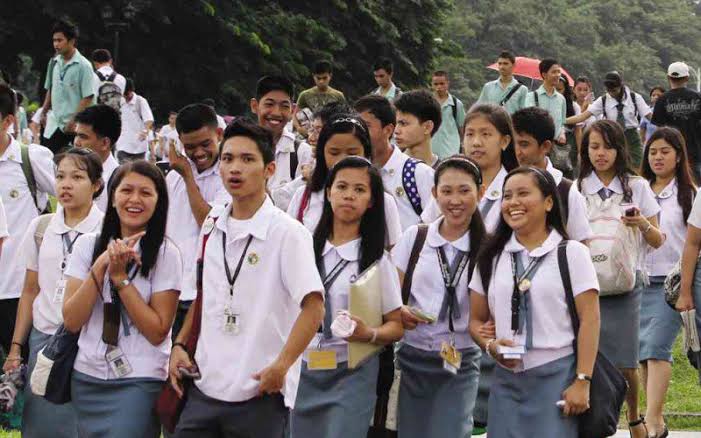Senator Jinggoy Ejercito Estrada has filed today a bill seeking to eliminate senior high school education from the country’s basic education system, citing persistent problems with the K to 12 program that was implemented over a decade ago.
Senate Bill No. 3001, titled “An Act Rationalizing the Philippine Basic Education System by Removing the Senior High School Education,” was introduced during the Third Regular Session of the 19th Congress and aims to amend Republic Act No. 10533, otherwise known as the “Enhanced Basic Education Act of 2013.”
The proposed legislation would reduce secondary education from six years to four years, eliminating Grades 11 and 12 that collectively form the Senior High School (SHS) program.
According to the bill’s explanatory note, the Department of Education reported during a May 8, 2025 hearing that “the SHS program has not yet reached its vision for the K to 12 graduates” due to several critical issues.
The department cited three main problems: congested curriculum with excessive competencies that limit instructional depth, overworked students and teachers whose instructional and homework time exceeds global standards, and low labor participation with only 10% of SHS completers entering the workforce, mostly in informal jobs.
Public satisfaction with the program has steadily declined, according to survey data presented in the bill.

The satisfaction rate for the SHS component specifically showed similar results, with 33% satisfied, 40% dissatisfied, and 27% undecided. This represents a huge drop from 41% satisfaction in June 2023, which declined to 35% in June 2024 and further to 33% in March 2025.
Under the proposed “Rationalized Basic Education Act,” the Philippine education system would consist of one year of kindergarten, six years of elementary education, and four years of secondary education – effectively returning to the pre-K to 12 structure.
The bill wants coordination between the Department of Education and the Commission on Higher Education to develop harmonized curricula that would ensure college readiness without requiring remedial courses.
Estrada’s Bill stated that the measure seeks to address feedback from learners and parents who “have not experienced the promised benefits of the implementation of SHS” and cannot bear the burden of time and cost associated with the additional two years.
The timing of Estrada’s bill coincides with ongoing efforts by the Department of Education to reform the senior high school curriculum.
Education officials have acknowledged that the current curriculum is “overly fragmented, with too many subjects” and are planning to reduce core subjects from 15 to just 5-7 starting the 2025-2026 school year.
The bill has been referred to the Senate Committee on Basic Education for further deliberation.
The legislation is seen as a major reversal of the K to 12 reform that was implemented in 2013 to align Philippine education with international standards and provide better preparation for higher education and employment.
The Enhanced Basic Education Act was originally designed to create “a functional basic education system that will develop productive and responsible citizens equipped with the essential competencies, skills and values for both life-long learning and employment.”
SENIOR HIGH IN MIMAROPA
An estimated 79,600 students are enrolled in Senior High School (SHS) across the MIMAROPA region for School Year 2024–2025, according to projections based on national enrollment data and recent population figures.
While the Department of Education (DepEd) reported over 571,000 total enrollees in MIMAROPA for all education levels, the agency has yet to release a province-level breakdown specific to SHS.
Nationally, SHS enrollment reached 3.13 million, comprising roughly 14% of the total 22.4 million basic education students.
Population and past census data suggest SHS enrollment in MIMAROPA accounts for approximately 2.54% of the national total.
Oriental Mindoro National High School in Calapan City remains one of Mimaropa’s major SHS institutions, offering multiple academic tracks.
However, current SHS-specific enrollment figures from schools remain largely unavailable.
Educational stakeholders are urging regional DepEd offices to publish disaggregated enrollment data to better support planning and policy targeting, particularly in underserved areas in Mimaropa.
(file photo courtesy of DepEd)
Discover more from Mindoro Today
Subscribe to get the latest posts sent to your email.

